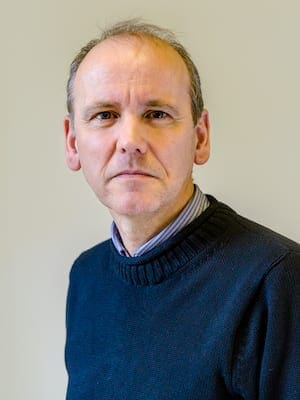The broken windows, torched cars and businesses, bloodshed and terror were ubiquitous in our media and horrific and tragic in their effects on those who experienced them in Great Britain.
However, the riots directly affected only a tiny fraction of our country. This is not to lessen their significance or to say that there are no lessons to learn either about their causes or their control.
This has been a humbling and deeply troubling experience. It would be irresponsible in the extreme to ignore its implications.
It would be irresponsible too, though, to rush straight into the sort of ill-considered legislative frenzy that gave us the Dangerous Dogs Act and the Cones Hotline.
Democracy has no more deadly enemy than a liberal who’s just been mugged.
The cry at present, understandably, is for the smack of firm government. It would be fatally easy for our political leaders to succumb to the call for ever tougher powers of social control, just to put people’s minds at rest.
But when it is seriously suggested that a whole family could be evicted because of the actions of a 12-year-old rioter, that social and mobile networks could be shut down (as one conservative Member of Parliament argued), or that the riots justify exemplary prison sentences, we are on very dangerous ground.
Strong political leadership does the right thing, not necessarily the popular thing.
What, then, are the lessons that can be learned? Some have pointed to the breakdown of family life and the waning influence of organized religion, which provided a moral foundation.
Others have drawn attention to the omnipresent images of the consumer goods and lifestyle that are supposed to drive our economic recovery, but which in fact taunt and tantalize people with visions of things they will never be able to afford and a life they will never lead.
No doubt all these influences, and more, played their part.
But as Christians our analysis should start with theology, and no account of these recent events is complete without a recognition of one of the Western Church’s primal doctrines: original sin.
We do not have to believe in a literal garden of Eden or a literal Adam and Eve to retain this as the most profound insight into the human condition, from which we need redemption.
There is a twist in the human heart, a tragic flaw that is always open to exploitation by the powers of evil.
We are more surprised when some people do wrong than when others do, but it should never be unthinkable to us.
“The assumption must be that all men are evil, and that they are always going to act according to the wickedness of their spirits, whenever they have free scope.”
That is not a quote from a learned theologian, but from a renowned – or notorious – political theorist, Nicolo Machiavelli.
It is not true that we always act badly. There are heart-warming stories of people who acted well. A counter-balancing doctrine of original goodness also needs to be explored, but Machiavelli was on to something.
Every society needs to be controlled because people can only be trusted up to a point. The end point of this control is the water cannon, the baton round and if necessary the bullet.
But control begins much earlier, in people’s minds and hearts, as they learn right from wrong, as they become part of a web of mutual understanding and obligation, and as they see themselves as part of a wider community than their family and friends.
This is the level at which the church has something of profound importance to say. But it is also a level at which we are faced with dialogue across the deepest gulfs in our fractured society.
We cannot pronounce from any moral high ground and expect people to listen. We must earn the right to be heard – and quickly.
MarkWoods is editor of Britain’s Baptist Times, where this column first appeared.

